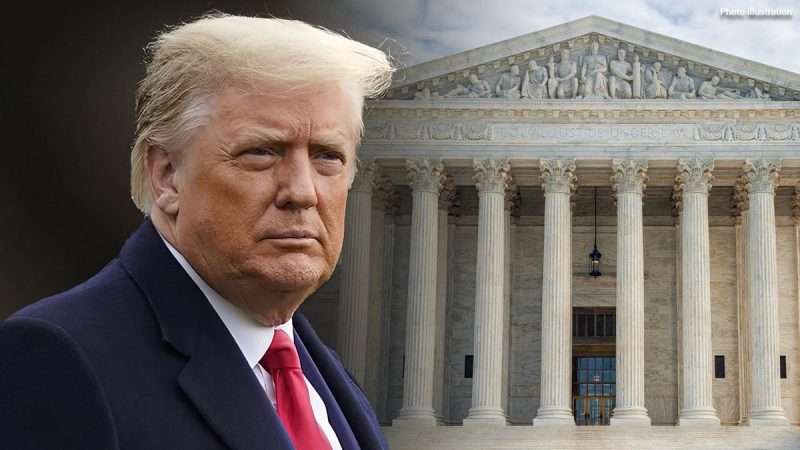On May 15, the U.S. Supreme Court will hear the argument in a series of cases that ask the court to decide whether individual district court judges can unilaterally stop the federal government from enforcing a law or policy nationwide. The court should jump at the chance to end this practice.
Normally, when a district court sides with a plaintiff’s challenge to a federal policy, the court’s injunction only applies to that plaintiff.
In the 1960s, however, some judges invented a new tool called a universal injunction to impose their will on the country. Instead of addressing the concerns of one plaintiff, these judges began enjoining the government from enforcing the policy against anyone, anywhere.
The universal injunction gives individual judges extraordinary power. Don’t like a law passed by Congress? Gone. Don’t like an agency’s regulation? Dead. Don’t like one of the president’s policies? Sayonara.
At first, these universal injunctions were uncommon. Courts issued only 27 universal injunctions up until the 21st century. But in recent decades, they have become a fact of life. President Joe Biden faced 14 universal injunctions in his four-year term, and President Donald Trump has surpassed that number in less than four months.
Nowhere does the Constitution say that district courts have this immense power. Nor has Congress ever authorized courts to issue universal injunctions. Universal injunctions also were not recognized in England, where America sourced much of its jurisprudence.
Yet individual judges around the country still claim they have the authority to bring the entire federal government to a screeching halt with the stroke of a pen.
To make matters worse, judges often issue these universal injunctions after preliminary hearings with limited debate by the parties. There’s no jury. There’s no trial. There’s no real testing of the evidence at all. It also means courts have little time to consider gnarly legal issues. That’s why judges are able to shut down federal policies nationwide within days or even hours.
This practice gives virtually unfettered discretion to the country’s most extreme jurists. The government could successfully defend a policy before hundreds of district judges, but a single judge who disagrees could still wipe out the policy nationwide.
Because the injunction can prohibit enforcement of the law or policy anywhere, the federal government understandably feels compelled to immediately appeal the case all the way to the Supreme Court if necessary. This rushed process undermines judicial decision-making.
The Supreme Court prefers when cases take their time and legal issues percolate in the lower courts. That ensures many legal scholars and judges have an opportunity to share their views and fully vet an issue. But universal injunctions often force the Supreme Court to abandon this thorough, deliberative process in favor of a hurried ruling based on half-baked briefs.
One rogue judge shouldn’t be able to force the Supreme Court to rush on complex legal issues because he or she assumed the power to enjoin a federal policy nationwide.
This isn’t an ideological issue. Justices Neil Gorsuch, Clarence Thomas and Elena Kagan have all expressed concerns about universal injunctions short-circuiting the American judicial system. Nor is this a partisan issue. Solicitor generals for both Presidents Biden and Trump have asked the Supreme Court to put an end to universal injunctions.
These individuals understand better than anyone that the rampant use of universal injunctions by district court judges is threatening to destabilize the judiciary, and indeed, our entire system of government. I hope the court will take advantage of the opportunity to end this unlawful practice once and for all.

